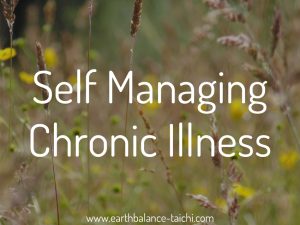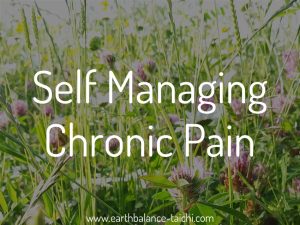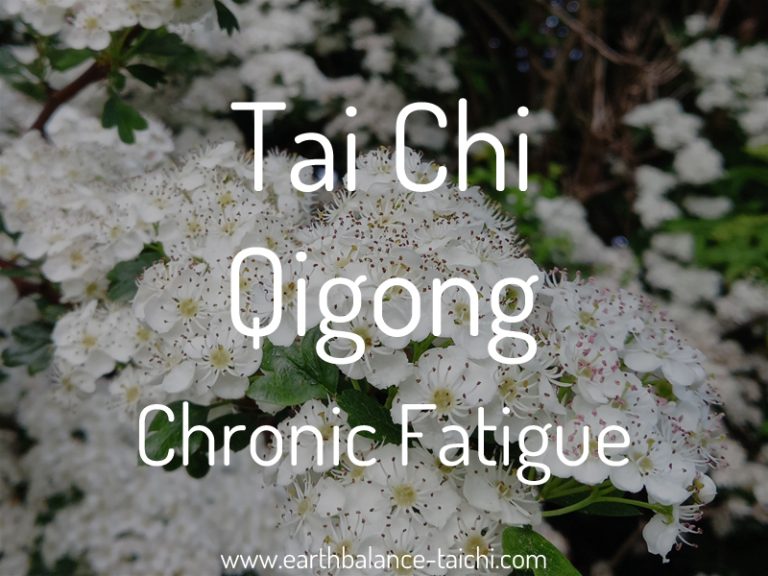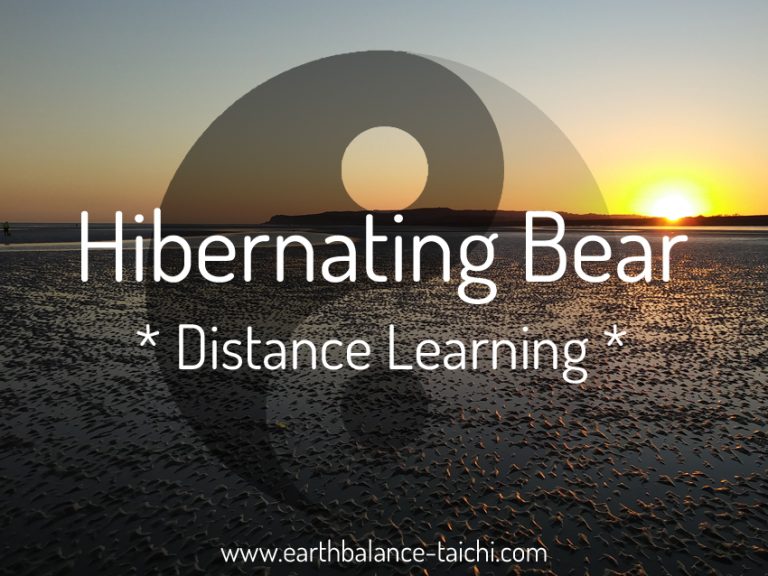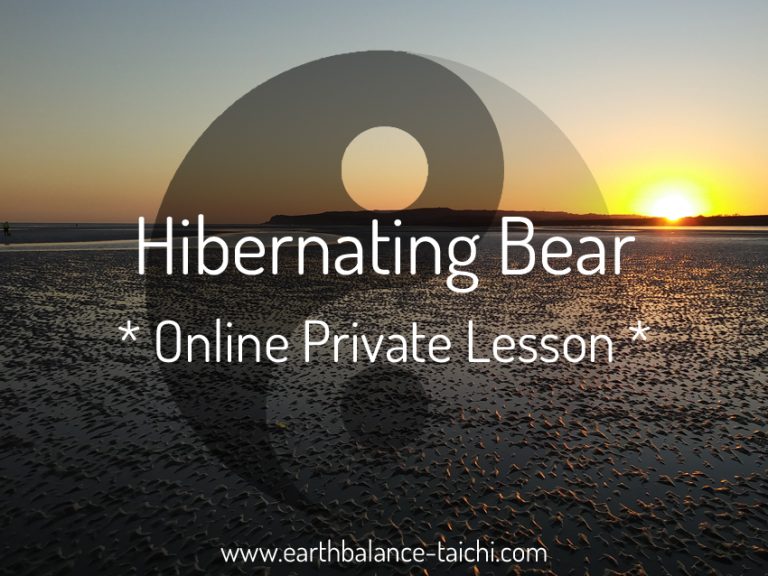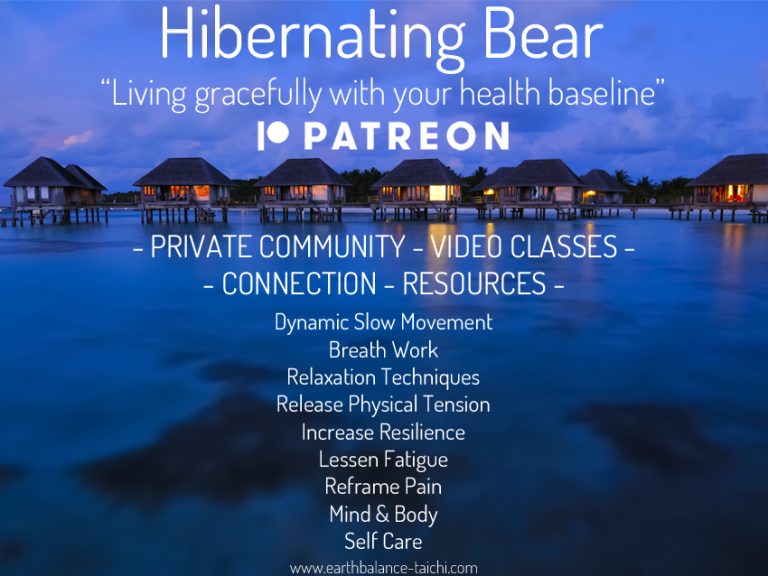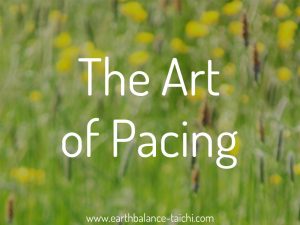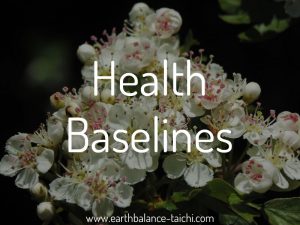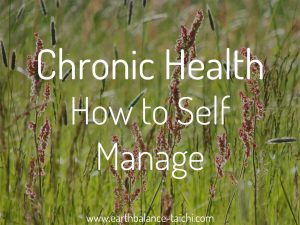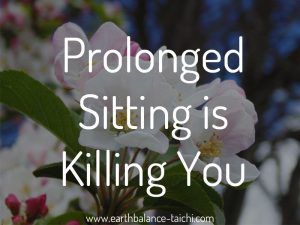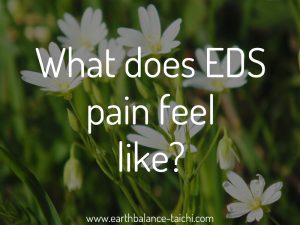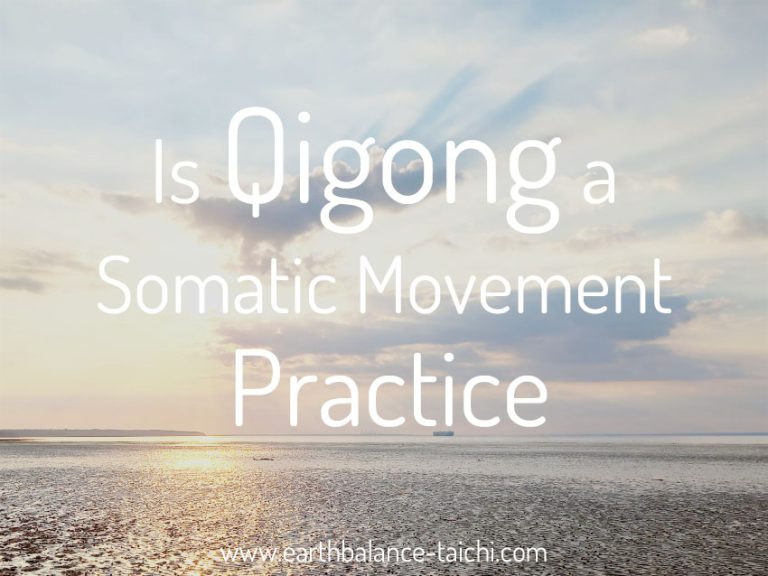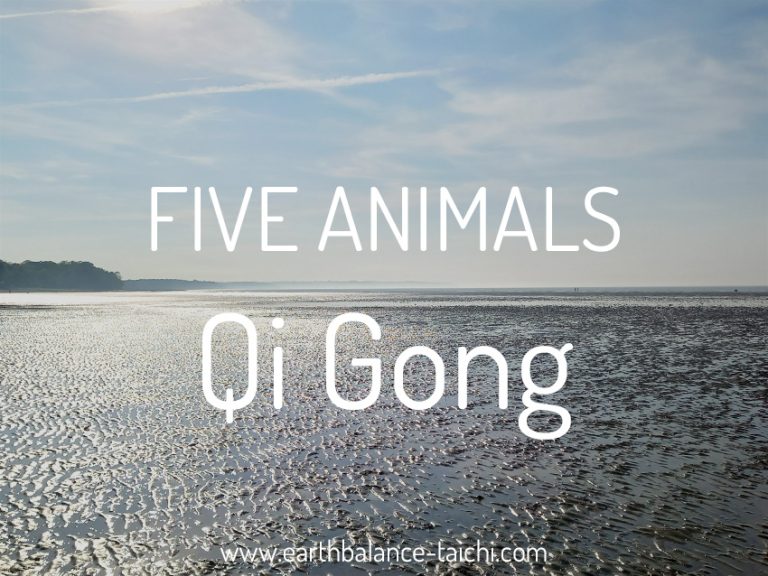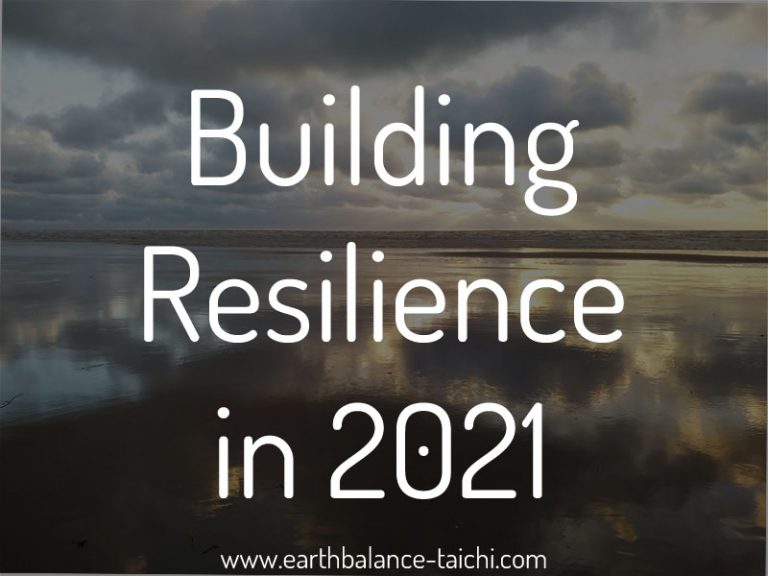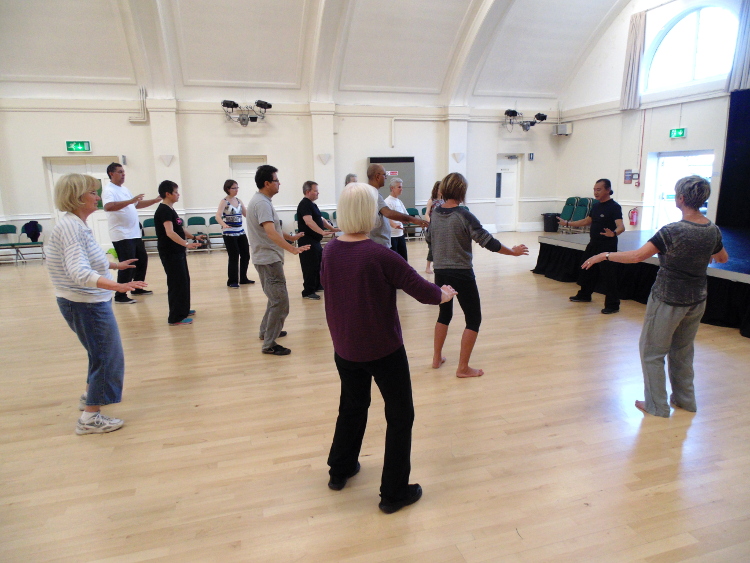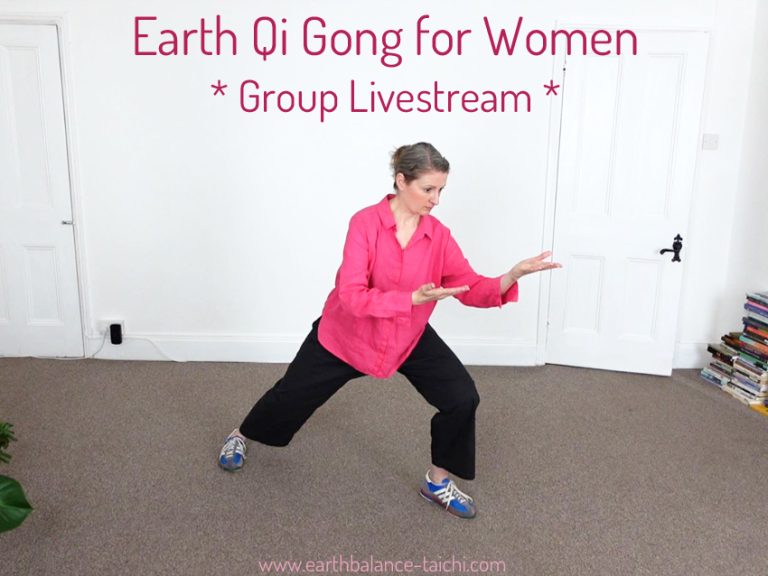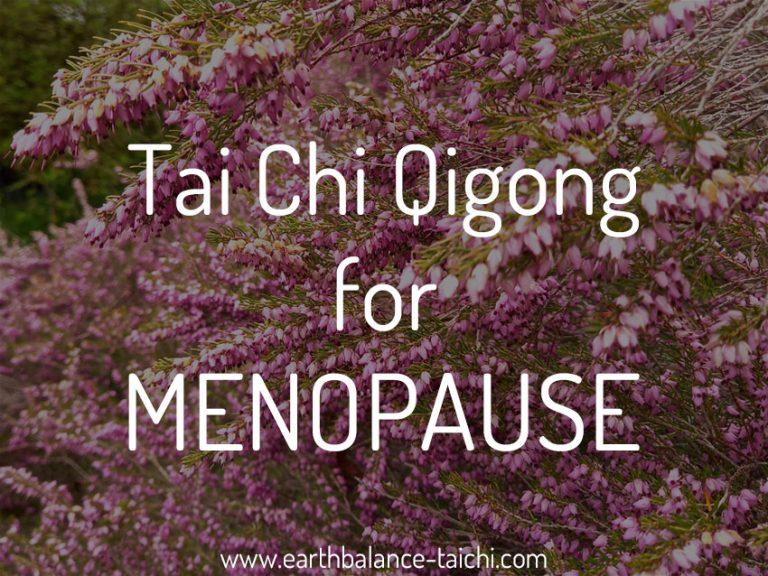Living Well With Chronic Fatigue
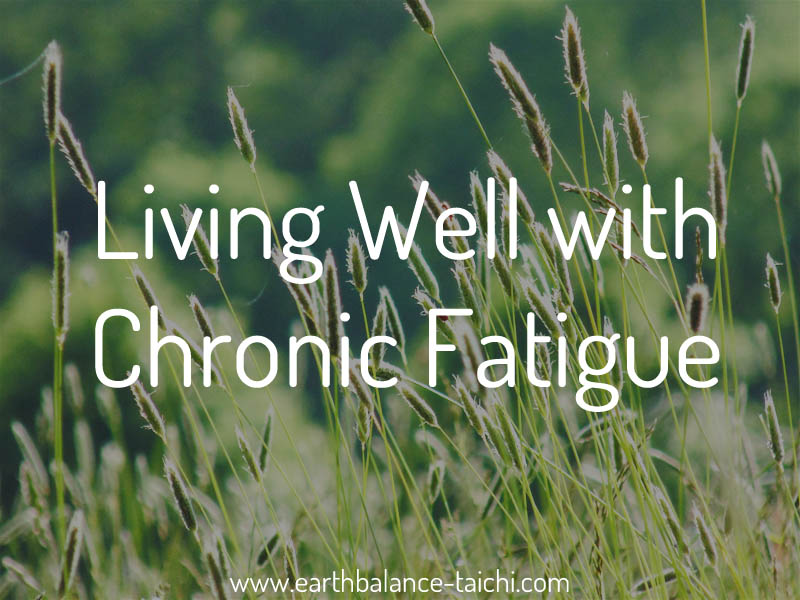
Living Well With Chronic Fatigue
As a Tai Chi and Qigong instructor living with pain and fatigue, I cannot now remember a day without either. It is a difficult road to walk and one I wouldn't wish on anyone. It's an invisible condition that is often not recognised, validated or understood by society, doctors, employers, friends and family. It effects every part of my life and I manage as best I can. My article on Living Well With Chronic Fatigue aims to make the invisible visible, to share my experience to help others learn about the condition and to share commonality with those also living with chronic fatigue syndrome (CFS).
Raw Chronic Fatigue
Chronic fatigue is a full time job, except there is no time off in lieu or annual leave. The smallest diversion from your routine can cause an avalanche. And yet to retain a sense of self, we must try to exist in the real world.
For me, as a person living with Ehlers Danlos Syndrome (EDS), one of the major symptoms is chronic fatigue. As I age, my physical baseline degenerates at an increasing rate, causing more fatigue, more pain, less rest and less sleep. You learn to live with continual loss as your world gets smaller. With that comes grief, frustration and sadness.
Managing chronic fatigue is exhausting, ironically on top of already feeling exhausted. The simplest of tasks can be the biggest mountain. Time away from the home can be costly. Sometimes chronic fatigue does not appear on the day you have over extended yourself. It will be the next day, the days and weeks after. Or you may hit a wall in the same day. Every event in life needs planning and careful consideration. It's micro management, a juggling act, trial and error along with adaptation to ebb and flow.
From chores to personal admin, personal hygiene, cooking, shopping, driving, walking, socialising, visiting, exercising, let alone working. Each tiny aspect of life is broken down into a limited amount of daily resources. Do I wash the dishes or my hair? I cannot do both in one day, nor can I drive to the shops, go shopping and then socialise. The choice is limited to one, lots goes by the wayside. I spend 11-12 hours in bed each day, resting and dozing with disturbed sleep. To be able to function during the day, as a minimum this is what I personally need.
When talking about fatigue, the general responses I hear are:
- I get tired too.
- Hope you feel better soon.
- Just push yourself through it.
- Try these pills that my cousin's step brother got, he's cured.
It is uncomfortable for most people to discuss and accept that you are not going to get well or feel better anytime soon, and may only get worse as time goes by. In my situation, the fatigue is caused by chronic muscular contraction, a birth defect in the DNA of the connective tissue, there is no cure, no getting better. Everything I do is to try and hold off the degeneration of the later stages of the syndrome. The number of conversations I have had, where people have been unable to accept there aren't any tablets or doctors to make me better. I believe this says more about their own psychology than the syndrome I live with.
When I talk about fatigue to healthy people, validation would be the ideal, not confrontation, judgement or disbelief. Having lived with symptoms for over a decade, you can be assured I have researched and tried every treatment and method from across the health sphere. I have become a patient expert in my own symptoms.
Chronic health, pain and fatigue changes the core of who you are. I try to retain as much of myself as possible on this journey. As a person I have become less tolerant, more selfish and more vulnerable. There is also a stigma with fatigue, that it is in the mind. Because others do not see you at home living with fatigue, they do not see the restrictions on your life, they do not see the mental impact fatigue has and they have never walked a day in your shoes. I would not wish chronic fatigue on another person.
Living Well with Chronic Fatigue
Often I hear the phrase 'living well' with chronic health, illness and fatigue. I use the perspective of looking for potential in any situation. Potential doesn't necessarily mean action or doing, it can be inaction and non-doing. The art of wu-wei is to live well through 'inexertion', the path of least resistance. Your routine and lifestyle may be having an impact on the severity of fatigue that you live with. It is possible to make changes, whether small or big, that have a positive impact on your daily resources. Try these recommendations to help the symptoms of chronic fatigue.
Energy Efficiency Summary
- Qigong and Tai Chi are effective methods of movement and stillness that help give you more energy by using and wasting less energy.
- Aligning your body so that you are not carrying the weight of your body stuck in the joints is an effective method at reducing fatigue.
- Qigong and Tai Chi also bring more oxygen into the body, which helps all body systems function better, reducing unnecessary fatigue from a lack of oxygen.
- Qigong and Tai Chi also reduce the stress response, by calming the mind and body and bringing your being into a neutral state. This reduces down unnecessary fatigue caused by living in the stress response.
Breath Work
- Diaphragmatic breathing helps all body systems function better.
- Breathing improves oxygen levels.
- Breathing improves brain clarity.
- Breathing deeply and slowly activates the rest and digest relaxation response, which allows the mind and body to relax, let go and use less of the fight or flight resources.
- Breathing diaphragmatically decreases fatigue.
Exercise
- Movement helps all body systems function better.
- We are not designed to be sedentary creatures, frequent movement is essential to health and wellbeing.
- Exercise improves blood flow, brain fluid, nerve responses, joint health, immunity, blood circulation, oxygen intake, digestion, hormone balance, lymph flow etc.
- Movement releases happy brain chemicals like serotonin, endorphins and dopamine.
- Exercise improves mental health in leaps and bounds.
- Exercise decreases fatigue.
Release Physical Tension
- Chronic muscular contraction drains your energy 24 hours a day.
- This constricts blood flow, blood circulation, lymph flow etc.
- Become aware of and learn to release and relax inappropriate muscle holding with practices like Tai Chi and Qigong.
- Physical therapy like massage and physio can help release tension.
- Breath work can help warm up and loosen the muscles and soft tissue around the torso.
- Releasing physical tension decreases fatigue.
Improve Your Posture
- A poorly aligned posture is using your energy / calories.
- Imagine if your head is pushed forwards in the reading phone posture, your head weighs about 12 pounds.
- When it is not aligned well over your spine, the weight goes onto the muscle on your neck, shoulders and back to hold it up.
- The muscles and connective tissue respond by trying to hold the head in place with contraction and growing fibrous tissue.
- This drains the body of energy, fatigues the muscles and causes muscle tension.
- Consider that effect on every joint. A poor posture sustained over time is exhausting on the body.
- By aligning your body regularly in movement and stillness, you can relieve pressure off the soft and connective tissue systems, and save your energy.
- It may sound like a contradiction, when you are tired, do a little Tai Chi, Qigong or standing practice to reset your structure, to lessen fatigue through aligning your posture.
Stress State
- Being in a state of stress has a major impact on the resources within the body.
- You will be in the fight, flight or freeze response, where hormones are released into the body like adrenalin and cortisol, which deplete your energy.
- Living with chronic fatigue, it is essential to avoid the stress response wherever possible.
- Removing stressors and the triggers of stress will help to reduce your fatigue levels.
- Your aim is to foster a calm and relaxed state of being.
Mental Health
- Living with chronic pain and chronic fatigue can lead to poor mental health.
- Poor mental health weakens the immune system, the functioning of the organs and the ability to cope.
- Which over time means an increased likelihood of disease and illness.
- Avoid inner conflict over the unpredictability and impact of chronic fatigue.
- It can be easy to fight or berate yourself over what you cannot do, which puts you in the stress response and drains your resources further.
- Improving mental health decreases fatigue.
My Experience of Fatigue - Tai Chi, Qigong, Meditation
The most essential skill of mind and body awareness that you can develop. The skill of listening to the physical body, emotions, mindset and spirit and responding with kindness. When exercising, it can be easy to just plough through the movements to get them done. Instead, as I move, I listen to my body and observe areas that feels at ease and areas that feel uncomfortable. I feel what my baseline is today, compared to yesterday and last month, so that my session does not become mere boom and bust. As I ebb and flow through life with chronic fatigue, I am responsive and adaptive in my routine. Sometimes I crash into my baseline, and at times it feels like a lot of trial and error, and at other times the last thing I want to do is concentrate on my body or how I am feeling. Be kind, be graceful and let go of expectation. Work with yourself gently through the flow of raw life.
Movement
My aim is to exercise daily, whether 5 minutes or 2 hours. I have a home Tai Chi, qigong, yoga, mobility and martial arts practice. I have an exercise practice that focuses on mobility rehabilitation to try and ease the pain and tension my body builds up daily. This for me personally is best done just before bed. It is part of my 'getting ready' for bed routine. It helps me release physical tension and also reduces the amount of pain I experience during the night. Without my night time movement schedule, my fatigue becomes unmanageable. I also have an exercise practice that focuses on my passions of Tai Chi and Qigong, where I learn, study, refine, adjust, tweak etc. Managing chronic fatigue, I have to have the available resources to do these exercises. Yet, after 15 years of trial and error, any daily movement is helpful to my fatigue, yet too little or too much causes more pain and fatigue. It's all about listening to your body and responding with grace. I would go as far as saying Tai Chi and Qigong are the most reliable at reducing fatigue, from my lived experience. My life would be very different without these practices.
Breathing
Deep abdominal breathing can be done lying down, sitting or standing. This makes it the perfect practice to help aid the symptoms of fatigue. Breathing is easy to do, we obliviously do it naturally without a single thought. In times of fatigue wherever we are, we can slow down our breathing rate, we can deepen the breath and increase our oxygen intake, helping our internal organs function better, helping us to lower our heart rate, lower our blood pressure and move us towards activation of the natural relaxation response. Through breathing we can also learn to release any physical and mental tension we are holding, which aids fatigue.
Stillness
Meditation and mindfulness practice can be done lying down, sitting or standing. During the times when you are in a bad fatigue flare, there are many meditation techniques from easy to complex that you can use to aid the symptoms of fatigue. And if you manage to nod off during a mediation practice, then cherish that moment! The simpler the better, it could be breath work, feeling the sensation of the abdomen rising and falling, or listening to breath work chimes, or listening to rainfall music. Taking time out to lower the stress response to your fatigue experience is important.
Rest / Relaxation
Take time to pause more than you think you need. Pausing is a powerful way to take care of yourself. From small moments to scheduled rest. I try to avoid the boom and bust cycle of not having enough rest because I am pushing myself to do more and more. And I try to rest without resentment, to let go of my fatigue experience and the expectations I put on myself, to just be.
Nutrition
Clean nutrition can be very helpful to a life with fatigue. From experience I recommend avoiding refined sugar, processed and junk foods as these can worsen fatigue. Fill your diet with organic fresh vegetables, fruit, dairy, meat and fish. I tend to avoid wheat products, night shade vegetables, grains and pulses as these make fatigue much worse. I follow a paleo diet 90% of the time and find it really helpful. Whatever your dietary requirements, there are healthy choices you can make that don't over-tax the systems in the body. Try out an elimination programme, by removing certain products bit by bit to see what works for you. Or seek the services of a naturopath doctor or nutritionist.
Nourishing Hobbies
I love to read, and since my health baseline reached a point I spend a lot of time lying down, reading has become an important part of my life. The freedom within my imagination, helps me to move without physically moving. I love the smell of paper books and there is nothing like a good story to transport you! Laughter is also a great medicine, from podcasts to stand up shows, smile, laugh and grin your way through.
Acceptance
I describe acceptance as the absence of resistance, a neutral position. Yes, living with chronic fatigue is unacceptable. However, our response can either worsen the symptoms or can soften them. We can work to accept fatigue, through kindness and grace. Being gentle with ourselves, patient and forgiving as a self-compassion practice is a key part of acceptance. Accept and express the range of emotions you experience as part of your raw life. Yes, you will have angry days, you are allowed to scream when you need to, and to cry with frustration. And yes, you will have manageable days. Acceptance in the physical body is letting go, releasing and dropping any muscular tension you are holding. You can use body scanning mindfulness techniques which can be done lying down or sitting. Give power back to your body by practicing body scanning as a skill, so that at any time you can draw your focus internally. By leading the body into a more relaxed state, the mind will also respond. Learning to release physical and mental tension is essential when living with chronic fatigue.
Student Experience
Read a student experience of living with chronic fatigue and practicing Qigong.
Living Well With Chronic Fatigue - Medical Research
"Qigong group 1 had reduced fatigue (P<0.001) and depressive symptoms (P=0.002), and improved telomerase activity (P=0.029). An effective practice regimen was identified (≥3 days/week, at ≥30min/session). Methods were slightly adjusted for Qigong group 2, which replicated Qigong 1 group findings, and further documented improved subjective sleep quality (P=0.008) and adiponectin levels (P<0.05). A significant dose-response relationship was founded. Thus, Qigong exercise should be recognized as a possible standalone therapy and self-management skill in CFS. Strategies are needed to increase motivation for regular practice and to explore the possibility of self-management skills in brain health." Chan, Jessie S M et al. “Qigong exercise for chronic fatigue syndrome.” International review of neurobiology vol. 147 (2019): 121-153. doi:10.1016/bs.irn.2019.08.002
Living Well With Chronic Fatigue - Resources
